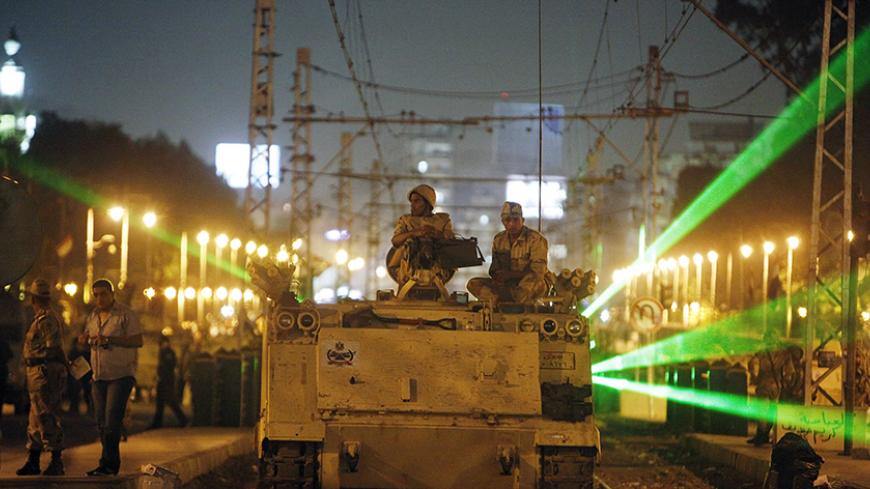The expression “military trials for civilians” — a controversial topic in the wake of the January 25 Revolution that had nearly disappeared from Egyptian media discourse — is now making a comeback.
On June 8, Egyptian President Abdel Fattah al-Sisi issued a decree commissioning the Egyptian armed forces to be the executive entity responsible for the supervision of state-owned land located within 2 kilometers (1.2 miles) on either side of the national network of roads, which includes 21 highways.


